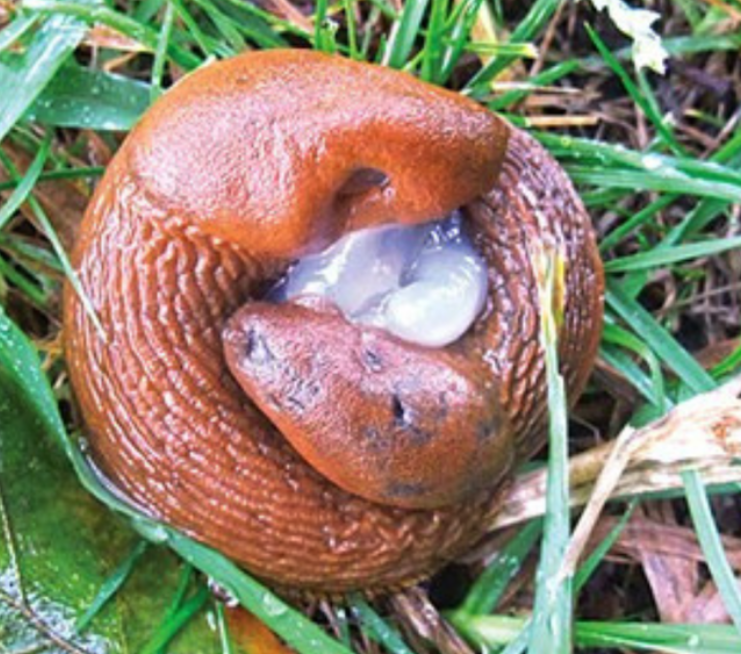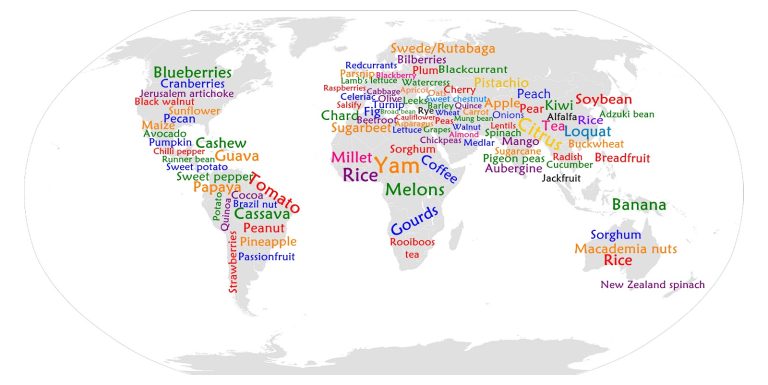How to get rid of snails and slugs without using poison

Organic Elimination of Slugs and Snails
There is nothing more frustrating than bounding out to your garden in the morning to see your baby plants and discovering that they have been devoured by slugs and snails. A few simple tricks can help avoid these horrible moments.
Trigger warning: In this article I advocate for the massacre of large numbers of plant-eating mollusks. These methods are all organic and they work but, yeah, sorry PETA.
Iron Phosphate, aka Sluggo.
Sluggo and Escar-Go are the main two organic slug baits that contain iron phosphate and they can be found at any garden store. They are safe to use around pets, but non-organic slug bait is definitely NOT, so make sure you buy one of these two brands. The mollusks eat the bait, then they decompose into nutrition for your soil. These products aren’t cheap, but they are organic and they work.
Keep your garden and greenhouse clean.
This especially goes for the greenhouse and nursery areas. All of those pots and tables make for a zillion places for slugs and snails to hide and breed. Get in there once a year and clean it all out well. Be sure to flip tables over and check under the lip of every pot and tray. They are adept at hiding so the hunt is time well spent.
Keep an eye out for eggs.
When you’re out in the garden, always be on the look out for the clusters of shiny white eggs. At the farm we used to call this “fool’s caviar” because they almost look like they could be on a plate with some fancy crackers. Often they are just under the soil, pushed up against a small piece of bark or a rock. Smash them with your shoe or a garden trowel.
Beer traps.
You’ve probably heard this one before. I like making traps out of recycled salsa tubs. Cut the lid into a t-shape by removing four wedges and replace it on top. This makes it easy for the slugs to get in but also easy for you to carry the trap, dump and refill it. Fill the tub with beer and place in strategic locations throughout the garden, such as near piles of big mulch and around plantings of delicate annuals. All that beer can get expensive, so ask at the local bar if they’ll give you the leftovers from the tap trap that they pour into a bucket every so often. We did this in our neighborhood and got more beer than we could handle.

Black pepper.
I have had excellent success with sprinkling tiny circles of black pepper around baby plants. The snails and slugs won’t cross the line. Salt works, too, but I prefer pepper because it doesn’t salinate the soil. This doesn’t kill them, however, so the problem with this method is that the hungry mollusks will just go elsewhere and eat something else.
Wood and cardboard.
Lay down large pieces of wood and cardboard in parts of the garden that seem to have the most slugs and snails. An hour after sunrise, go out and flip the boards over to find a big, slimy slug party. Use a sharp knife to cut them all in half or smash them with your boot.
Citrus rinds.
Slugs and snails will crawl right up inside inverted citrus rinds placed in the garden. Then you can just scoop them up and throw them in your bucket of soapy saltwater.
Hunting.
Put on your headlamp and go hunting in the night. Look under mulch, wood and anything else that provides moist shade. Look in your garden beds for the iridescent trails and follow them to the source. A few days of diligence can make a huge difference.
Copper.
I have heard that copper wire stretched around garden beds will deter snails and slugs, but I haven’t tried it. Sounds expensive.
Ducks love slugs.
They also love baby plants, berries and tiny vegetables, however, so graze your ducks in areas where perennials are well established rather than in annual vegetable beds.
Slime warning:
You probably don’t want to pick up the slugs with bare hands, and the slime will quickly turn any pair of gloves into the grossest ones you own. Try using chopsticks or tongs instead. Or just skewer them with a sharpened stick. If you’re not comfortable skewering them or slicing them with a knife, try just tossing them into a bucket of hot soapy saltwater. That will do the trick. Dump the nasty results somewhere outside of the garden though, because the soap and salt isn’t good for your soil.
Good luck and happy hunting!



